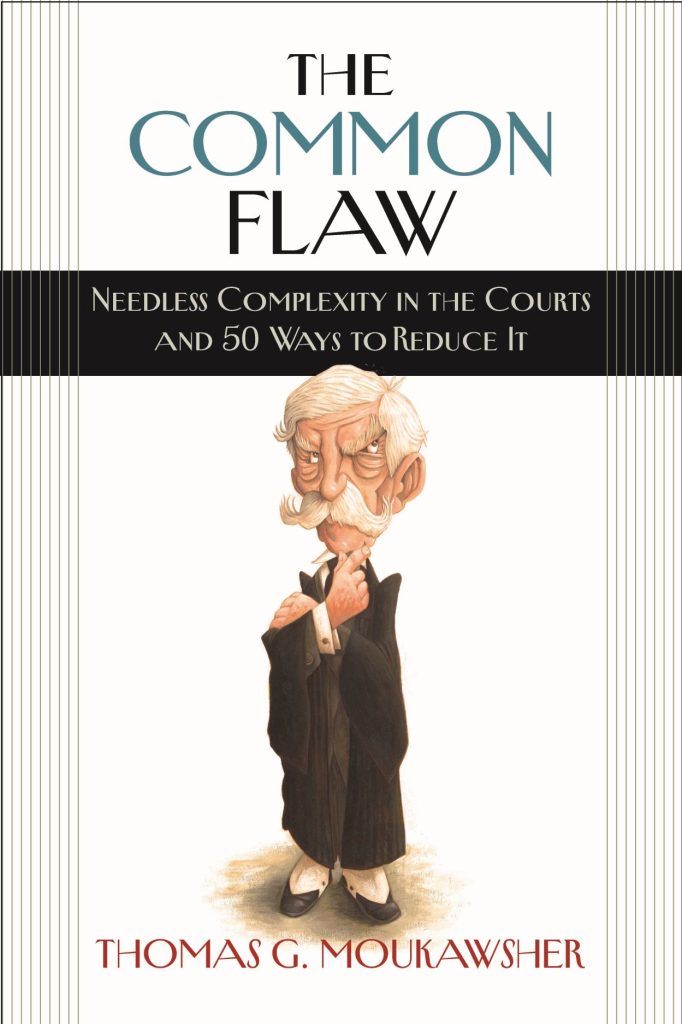The Common Flaw
Needless Complexity in the Courts and 50 Ways to Reduce It
 Buy the Book: Amazon, Barnes & Noble, Brandeis University Press, Books-a-million, Bookshop
Buy the Book: Amazon, Barnes & Noble, Brandeis University Press, Books-a-million, BookshopPublished by: Brandeis University Press
Release Date: September 25, 2023
Pages: 240
ISBN13: 978-1684581641
Synopsis
The Common Flaw seeks to rid the American lawsuit of needless complexity.
It argues that Americans are losing faith in their courts because after long delays they too often get rid of cases for technical reasons or force them to settle rather than deciding them, and because, when they do decide them, we can’t understand why.
The book proposes fifty changes from the filing of a complaint in court to the drafting of appellate decisions to replace the formalism that prevails in court with a kind of humanism—that decides cases promptly—more on the facts than the law—more for the parties than the lawyers—more for the consequences to the people and the public—and in words we can all understand.
Praise
“In this important book Judge Moukawsher provides an essential roadmap for reconsidering the priorities and aims of the judicial process, placing humanism and the public trust at the center of an important agenda for reform.”
—Paula A. Franzese, Peter W. Rodino Professor of Law, Seton Hall University School of Law
“A New England judge with a Southerner's flair for metaphor, he criticized 'uselessly perfect teacher evaluations" as part of a rating system, "that is little more than cotton candy in a rainstorm.'”
—New York Times
“Hard to believe that a court ruling could be compelling? Try this: 'The state's definition of what it means to have a secondary education is like a sugar cube boat. It dissolves before it's half launched.'”
—Chicago Tribune
“I started reading the judge's... decisions and discovered a wonderful trove of language... I could read his decisions forever. Moukawsher wastes no time with fools or foolishness. Upon retiring from the bench, he might try faits divers. Genius.”
—Mark Dubois, Connecticut Law Review
“By explaining the reasoning, history and context behind his ruling in an easy-to-understand language, the judge did the public — the sovereign, if you will — a favor. In that sense, this was an opinion fit for a king.”
—Connecticut Law Tribune Editorial Board
“The book is clearly written and argued, and each chapter includes a legal cartoon, which legal reformers will likely enjoy. There are also plenty of practical tips.”
—Library Journal